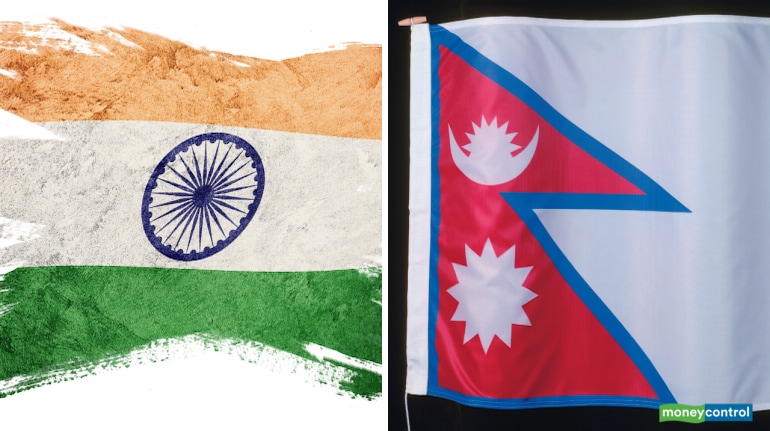



Nepal has requested India to fast-track the Covishield vaccine consignment it has already paid for, sources say. With new cases exploding over the past one week, Nepal has also requested crucial medical supplies, including ventilators, and a steady flow of oxygen from India.
COVID-19 cases are rising in the Himalayan nation after a double mutant variant of the virus which originated from India travelled across the porous border.
On February 20, Nepal received the first commercial shipment of 10 lakh doses of Covishield from the Serum Institute of India (SII). Sources say that an equal amount of doses is pending with SII and the country is not sure when it will receive it.
"This has held up vaccination of the critical segments of the population such as senior citizens and frontline workers," a diplomatic source said.
Under pressure to continue the vaccination drive, the country has also given emergency use approval to Vero Cell, a Chinese vaccine. However, there are significant concerns on the efficacy and safety of the vaccine as it is not yet recognised by the World Health Organization (WHO) and the Chinese authorities have consistently refused to share details about Made-in-China jabs.
While the country has been promised 8 lakh doses by Beijing, it continues to push for the Covishield doses, the first shipment of which had been widely distributed in the country earlier this year. Nepalese Prime Minister KP Sharma Oli was also vaccinated with Covishield in March.
Difficulty in meeting demandThe request for vaccines, even on humanitarian grounds, will be difficult to meet, said officials. As reported by Moneycontrol, the Ministry of External Affairs (MEA) had suspended global donations of jabs through the 'Vaccine Maitri' programme, after a shortage hit India.
After the decision was taken on April 6, the government has sent out just two shipments -- to Trinidad & Tobago and Albania - which were promised vaccines beforehand.
As part of the programme, India has sent 11 lakh doses to Nepal as well, with the last shipment leaving on March 28 for the Himalayan nation.
“Given the magnitude of the pandemic, the need for COVID-19 vaccines in India has shot up. We are not in a position to share vaccines through the usual routes. But requests from allies in our immediate neighbourhood are always dealt with on a priority basis,” a senior official said.
Nepal has recorded 3,556 cases on April 27, the highest so far in 2021, forcing the government to implement a complete week-long lockdown in the national capital Kathmandu and surrounding districts.
The country has informed India that the second wave of Coronavirus is now in full swing over there. Active cases have risen from 550 on February 21 to nearly 20,000 this week.
Discover the latest Business News, Sensex, and Nifty updates. Obtain Personal Finance insights, tax queries, and expert opinions on Moneycontrol or download the Moneycontrol App to stay updated!
Find the best of Al News in one place, specially curated for you every weekend.
Stay on top of the latest tech trends and biggest startup news.